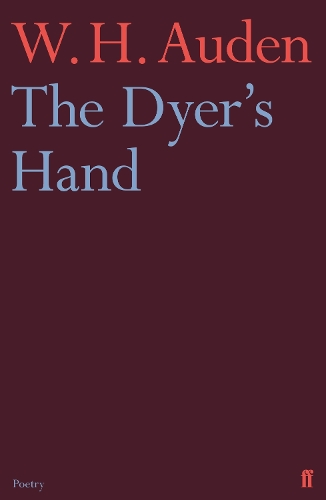
The Dyer's Hand
(Paperback, Main)
Publishing Details
The Dyer's Hand
By (Author) W.H. Auden
Faber & Faber
Faber & Faber
1st March 2013
21st February 2013
Main
United Kingdom
Classifications
General
Non Fiction
Literary studies: c 1900 to c 2000
821.912
Physical Properties
Paperback
384
Width 140mm, Height 218mm, Spine 29mm
505g
Description
In the early 1950s Auden began planning a prose volume that would bring together some of his published essays, lectures, and reviews, together with newly-written notes and aphorisms. In 1956 he was elected Professor of Poetry at Oxford, and The Dyer's Hand appeared in 1962, combining earlier material with revised versions of many of his Oxford lectures: The result is one of Auden's most original works, his only book of prose devised as a single cohesive work about disparate subjects, and containing -as he remarked at the time -'all the autobiography I am willing to make public'.
Author Bio
W. H. Auden was born in York in 1907, and brought up in Birmingham. His first book, Poems, was published by T. S. Eliot at Faber in 1930. He went to Spain during the civil war, to Iceland (with Louis MacNeice) and later travelled to China. In 1939 he and Christopher Isherwood left for America, where Auden spent the next fifteen years lecturing, reviewing, writing poetry and opera librettos, and editing anthologies. He became an American citizen in 1946, and was awarded the Pulitzer Prize in 1948. In 1956 he was elected Professor of Poetry at Oxford, and a year later went to live in Kirchstetten in Austria, after spending several summers on Ischia. He died in Vienna in 1973.
